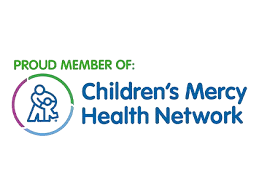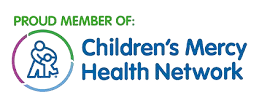8781 N. Platte Purchase Dr, Kansas City, MO 64155 US
What's Going Around?
Respiratory Syncytial Virus (RSV)
RSV is one of the many viruses that cause respiratory illness. It spreads like a cold virus from person to person. It enters the body through the nose or eyes, usually from contact with infected saliva, mucus or nasal discharge. Typically, RSV causes cold symptoms, which may be followed by bronchiolitis or pneumonia which are infections of the lower airways in the chest or lungs. RSV symptoms are typically at their worst on days 3 through 5 of illness. Symptoms generally last an average of 7-14 days.
Call our office right away if your child has any:
- Symptoms of bronchiolitis:
-
Fast breathing
-
Flaring of the nostrils & head bobbing with breathing
-
Rhythmic grunting during breathing
-
Belly breathing, tugging between the ribs and/or the lower neck
-
Wheezing
-
-
Symptoms of dehydration (fewer than 1 wet diaper every 8 hours)
-
Pauses or difficulty breathing
-
Pale, gray or blue-colored skin, lips or nail beds, depending on skin tone
-
Significantly decreased activity and alertness
Some children with RSV may be at increased risk of developing a bacterial infection, such as an ear infection. Call our office if your child has:
-
Symptoms that worsen or do not start to improve after 7 days
-
A fever (with a rectal temperature of 100.4°F or higher) and they are younger than 3 months of age (12 weeks).
-
A fever that rises above 104°F repeatedly for a child of any age.
- Poor sleep or fussiness, chest pain, ear tugging or ear drainage
Beyfortus is a monoclonal antibody with activity against RSV. Monoclonal antibodies are laboratory-made proteins that mimic the immune system’s ability to fight off harmful pathogens such as viruses. One dose of Beyfortus, administered as a single intramuscular injection prior to or during RSV season, may provide protection during the RSV season.
Beyfortus (Nirsevimab) is recommended for: All infants younger than 8 months of age born during RSV season or entering their first RSV season.
If your child shows any signs of troubled breathing, call the office for guidance. Our triage nurses will determine if your child needs to be evaluated in the office or refer you on to urgent care/emergency room.
Locations

Office Hours
Mon-Thurs: 8am - 8pm
Fri: 8am - 5pm
Sat: 9am - 12pm
Sun: Closed
Office Hours
Mon-Thurs: 8am - 8pm
Fri: 8am - 5pm
Sat: 9am - 12pm
Sun: Closed
Locations
Location

Office Hours
Mon-Thurs: 8am - 8pm
Fri: 8am - 5pm
Sat: 9am - 12pm
Sun: Closed
Office Hours
Mon-Thurs: 8am - 8pm
Fri: 8am - 5pm
Sat: 9am - 12pm
Sun: Closed
